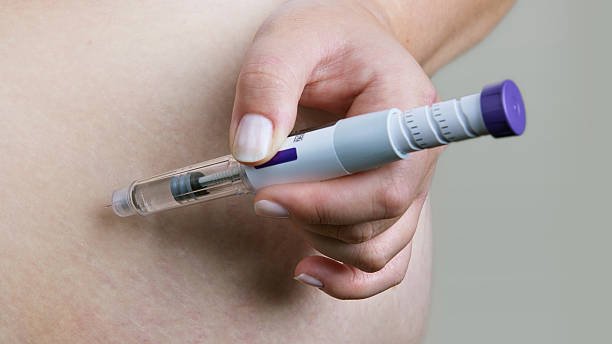Skin whitening is a subject of growing interest and concern, particularly in societies where lighter skin tones are often associated with beauty, youth, and success. While skin whitening is a complex issue influenced by factors such as genetics, diet, lifestyle, and skincare habits, there are numerous treatments available, each with its own benefits and risks( تبييض البشرة). This post will explore some of the most effective and safest skin whitening treatments, highlighting their mechanisms, benefits, and potential side effects. In addition, we will address frequently asked questions about skin whitening and provide insights on how to achieve a healthy, glowing complexion.
Understanding Skin Whitening:
Skin whitening, also referred to as skin lightening, is the process of reducing the melanin content in the skin, which results in a lighter skin tone. Melanin is the pigment responsible for the color of your skin, hair, and eyes. When melanin production is reduced, it can lead to a more even and lighter complexion.
There are several factors that affect the production of melanin, including:
- Genetics: Your genetic makeup plays a significant role in determining your natural skin color.
- Sun Exposure: UV rays from the sun stimulate melanin production, leading to tanning or dark spots.
- Hormonal Changes: Pregnancy, hormonal treatments, or conditions like melasma can cause skin discoloration.
- Aging: As you age, skin tends to produce more pigmentation, leading to darker spots or uneven tone.
While many people seek skin whitening for cosmetic reasons, it’s important to remember that achieving an even skin tone and healthy complexion should be the priority over the pursuit of lightness.
Top Treatments for Skin Whitening:
There are several treatment options available for individuals seeking to whiten or lighten their skin. These treatments range from topical creams to professional procedures. Below, we will examine the most popular options and their effectiveness.
1. Topical Treatments (Skin Whitening Creams)
Topical creams are the most common and accessible method for skin whitening. They often contain active ingredients that reduce melanin production or promote skin exfoliation.
a) Hydroquinone
Hydroquinone is one of the most widely used ingredients in skin whitening products. It works by inhibiting an enzyme called tyrosinase, which is responsible for producing melanin. Hydroquinone creams are typically available in concentrations ranging from 2% (over-the-counter) to 4% (prescription-strength). Regular use can lead to a lighter complexion and a reduction in dark spots, age spots, and melasma.
Pros:
- Highly effective in reducing pigmentation
- Can lighten dark spots and even out skin tone
- Available in various strengths
Cons:
- Prolonged use can cause side effects like skin thinning, irritation, and ochronosis (blue-black discoloration of the skin).
- Use should be monitored by a dermatologist.
b) Vitamin C (Ascorbic Acid)
Vitamin C is a powerful antioxidant that helps brighten the skin by reducing the production of melanin. It also promotes collagen production, which helps in reducing the appearance of fine lines and wrinkles. Vitamin C is found in many serums and creams marketed for skin whitening.
Pros:
- Safe for long-term use
- Improves skin texture and tone
- Provides anti-aging benefits
Cons:
- Can cause irritation for sensitive skin
- May lose potency in sunlight, so it should be stored properly.
c) Kojic Acid
Kojic acid is a natural skin-lightening agent derived from fungi and certain plant sources. It works by inhibiting the production of melanin and is often used in combination with other ingredients to enhance its effectiveness.
Pros:
- Suitable for sensitive skin
- Can reduce dark spots, acne scars, and melasma
Cons:
- May cause skin irritation or allergic reactions in some individuals
- Results may take time (several weeks to months)
d) Alpha Hydroxy Acids (AHAs)
AHAs, such as glycolic acid and lactic acid, are chemical exfoliants that help remove dead skin cells, revealing fresher, more even skin underneath. These acids can also help reduce pigmentation over time.
Pros:
- Non-invasive and effective for exfoliating the skin
- Improves overall skin texture and brightness
Cons:
- Sun sensitivity after use
- May cause irritation for sensitive skin types
Laser Treatments for Skin Whitening
Laser treatments have become increasingly popular for skin whitening due to their precision and ability to target deeper layers of the skin. These treatments work by targeting pigment cells (melanocytes) and breaking down the melanin, leading to a lighter complexion.
a) Fractional CO2 Laser
The fractional CO2 laser is one of the most effective laser treatments for skin whitening. It works by creating tiny wounds in the skin, which stimulates the production of collagen while targeting melanin-producing cells.
Pros:
- Effective for treating pigmentation issues like sun spots and melasma
- Provides long-lasting results
Cons:
- May cause temporary redness, swelling, or irritation
- Can be expensive and may require multiple sessions
b) Q-Switched Nd:YAG Laser
This laser is commonly used for pigmentation issues, including freckles, age spots, and melasma. The Q-switched Nd:YAG laser targets melanin directly without affecting the surrounding skin.
Pros:
- Effective for all skin types
- Minimal downtime and fewer side effects
Cons:
- Requires multiple sessions for optimal results
- Expensive treatment
Chemical Peels
Chemical peels involve applying a chemical solution to the skin that exfoliates the outer layers, allowing fresh, new skin to emerge. This treatment can improve skin tone and lighten hyperpigmentation.
Types of Chemical Peels:
- Superficial Peels: Use mild acids to exfoliate the outer layer of skin. Best for light skin whitening and treating minor pigmentation.
- Medium Peels: Use stronger acids for deeper exfoliation, addressing medium pigmentation issues like melasma and sun damage.
- Deep Peels: Reserved for severe pigmentation issues, though they carry more risks and require significant downtime.
Pros:
- Non-invasive procedure
- Effective for hyperpigmentation and uneven skin tone
Cons:
- Requires downtime for recovery
- Risks of scarring or hyperpigmentation if not done properly
Natural Remedies for Skin Whitening Many people prefer natural remedies for skin whitening due to the perceived safety of these treatments. While these methods are less likely to cause irritation, they may take longer to show results.
Licorice extract contains glabridin, a compound known for its ability to inhibit melanin production. It is often used in skincare products designed to brighten skin.
a) Licorice Extract
b) Aloe Vera
Aloe vera is a natural anti-inflammatory that can lighten skin and reduce pigmentation. It can be applied topically to help with pigmentation caused by sun exposure.
c) Turmeric
Turmeric has been used for centuries in traditional skincare routines. Its active ingredient, curcumin, has antioxidant and anti-inflammatory properties that can help lighten skin and reduce dark spots.
Pros:
- Natural and free from harsh chemicals
- Safe for most skin types
Cons:
- Results may take longer to appear
- Some remedies may not be as effective as medical treatments
Frequently Asked Questions (FAQs)
1. Can skin whitening treatments provide permanent results?
Skin whitening treatments can provide long-lasting results, but they are not necessarily permanent. Factors like sun exposure, hormonal changes, and aging can affect the skin’s appearance over time. To maintain results, continued care and protection (like wearing sunscreen) are essential.
2. Are there any risks associated with skin whitening treatments?
Yes, some skin whitening treatments, especially those that contain harsh chemicals or undergo laser procedures, can cause side effects like irritation, scarring, or uneven pigmentation if not used correctly. It’s crucial to consult a dermatologist to ensure safe and effective treatment.
3. How long does it take to see results from skin whitening treatments?
Results vary depending on the treatment and individual skin type. Topical treatments like creams may take a few weeks to months to show noticeable changes. Laser treatments and chemical peels can provide faster results, but they may require multiple sessions.
4. Is it safe to use skin whitening products during pregnancy?
Pregnant women should consult a doctor before using any skin whitening products, as certain ingredients (like hydroquinone or retinoids) may not be safe during pregnancy.
Conclusion!
There are various methods available for skin whitening, ranging from topical treatments like hydroquinone and vitamin C to more advanced options like laser treatments and chemical peels. Each option has its own set of benefits, risks, and timeframes for visible results. It’s crucial to choose a treatment that aligns with your skin type, budget, and desired outcome. Always consult with a dermatologist before starting any treatment to ensure safety and effectiveness.
Achieving and maintaining healthy, glowing skin should always be the primary goal, and a lightened complexion can be a byproduct of a proper skincare routine.
















Leave a Reply